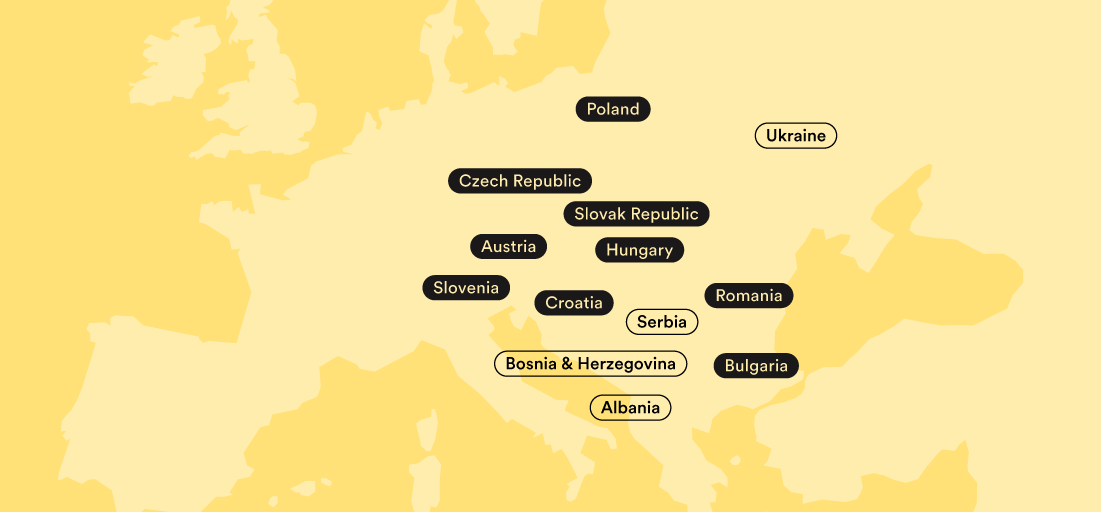Representative Actions Directive tracker
To date, collective redress has been regulated differently among EU-Member States. In particular, a uniform and efficient enforcement of collective consumer interests has hardly been possible within the EU.
The Directive (EU) 2020/1828 on “representative actions for the protection of the collective interests of consumers” (“Representative Actions Directive“), which is part of the EU-commissions’ so-called “New Deal for Consumers“, now aims to harmonise collective redress at a European, and to a certain extent, a national level. It requires EU-Member States to enact procedures for “qualified entities” to bring actions for injunctions, damages claims or other redress measures on behalf of consumers. The Representative Actions Directive has the potential to significantly affect the balance of power concerning consumer redress and is likely to strengthen the current trend towards collective actions and mass claims in Europe.
The Representative Actions Directive entered into force on 24 December 2020 and should have been transposed into national law by 25 December 2022. This deadline was met by only a few EU-Member States. By 25 June 2023, the national transitional provisions should have entered into force in the EU-Member States. However, the transposition process among EU-Member States has progressed differently and is still ongoing.
The following tracker monitors the stage of transposition of the Representative Actions Directive in our EU-offices.

Not applicable
- Albania
- Bosnia & Herzegovina
- Serbia
- Ukraine
Draft
Transposed
AUSTRIA
| 1. Current collective redress regime: | Austrian-Style Collective Actions; Representative Action pursuant to Sec 29 Consumer Protection Act and Sec 14 Unfair Competition Act |
| 2. Stage of transposition of directive: | Transposed – Representative Actions Directive Implementation Act dated 11 July 2024 (“Implementation Act“) |
| 3. Extent to which existing law needed to be changed due to the transposition of the directive: | Moderate change |
| 4. Risk for companies due to the transposition of the directive: | Medium risk for companies |
| 5. B2C or B2C/B2B: | B2C |
| 6. Opt-in/Opt-out: | Opt-in; however, only regarding redress measures |
| 7. Eligibility: | The group must at least encompass 50 consumers. Claims must be of the same kind and based on the same or similar factual basis |
| 8. Qualified entities (“QE”): | Own law concerning QE. Federal Cartel Attorney is in charge regarding the approval process of QE. The detailed criteria for QE are stipulated in the underlying legislation, substantively following the criteria envisaged in the Directive. Some associations and autonomous bodies, whose tasks include the protection of consumer rights, are determined as QE by law and are authorized to bring either cross-border or domestic representative actions |
| 9. Quantum of damages: | The Implementation Act lacks any regulation in this regard. However, under the Austrian Civil Procedure Code courts are authorized to estimate damages |
| 10. Third party funding: | Third-party litigation funding is permitted. There is no cap on the compensation obtained by the litigation funder |
| 11. Allocation of costs: | The “loser pays” principle applies. The QE have the obligation to bear the court fees / legal fees. Under exceptional circumstances, a consumers may be liable for such fees as a result of its deliberate conduct |
| 12. Noteworthy: | First decisions regarding acceptance of QE status to be rendered in 2024 |
Related experts
BULGARIA
| 1. Current collective redress regime: | Bulgarian consumer protection legislation provides for collective redress since 2007, whereas general rules on collective claims also exist in the Bulgarian Civil Procedure Code |
| 2. Stage of transposition of directive: | Draft – approved by the Council of Ministers, currently pending before the Parliament |
| 3. Extent to which the existing law needed to be changed due to the transposition of the directive: | Significant change |
| 4. Risk for companies due to the transposition of the directive: | Cannot be determined at this stage. However, business organizations such as the chambers of commerce, sectorial organizations, etc. assume that the adoption of the proposed draft will lead to a high risk for companies |
| 5. B2C or B2C/B2B: | Based on the draft: B2C |
| 6. Opt-in/Opt-out: | Based on the draft: Opt-in |
| 7. Eligibility: | The draft does not provide any details on the degree of similarity or the minimum number of consumers |
| 8. Qualified entities (“QE”): | Based on the draft: Representative actions may be brought by the Bulgarian Consumer Protection Commission and representative non-profit entities, if they are included in the list approved by the Bulgarian Minister of Economy and Industry or are included in a similar list in other EU Member States |
| 9. Quantum of damages: | The draft lacks any regulation in this regard. However, under the Bulgarian Civil Procedure Code, courts are authorized to estimate damages if such have not been fully proven by the parties |
| 10. Third party funding: | Third-party litigation funding is not currently regulated under Bulgarian law. However, the proposed draft includes provisions addressing it and requiring third-party funded claimants to disclose potential conflicts of interest upon request of the Court |
| 11. Allocation of costs: | The draft refers to the “loser pays” principle. However, individual consumers shall not be liable for costs, unless in circumstances where the court may order an individual, belonging to the group, to pay the costs that were incurred as a result of the individual consumer’s intentional or negligent conduct |
| 12. Noteworthy: | N/A |
Related experts
CROATIA
| 1. Current collective redress regime: | Collective actions have already been available under the Croatian Consumer Protection Act |
| 2. Stage of transposition of directive: | Transposed |
| 3. Extent to which the existing law needed to be changed due to the transposition of the directive: | Significant change |
| 4. Risk for companies due to the transposition of the directive: | Medium risk for companies |
| 5. B2C or B2C/B2B: | B2C |
| 6. Opt-in/Opt-out: | Both (opt-in in case of redress measures) |
| 7. Eligibility: | The eligibility criteria follow the principles envisaged under the Directive. However, injunctive measures by a QE require consultations with the company in question, with the aim of having that company cease the infringement |
| 8. Qualified entities (“QE”): | Representative actions may only be filed by QE, designated by the Croatian Ministry of Economy and Sustainable Development. The detailed criteria for QE are stipulated in the underlying legislation, substantively following the criteria envisaged in the Directive |
| 9. Quantum of damages: | Courts are authorized to estimate damages, if the amount of compensation cannot be determined, or if this could only be established with disproportionate difficulties |
| 10. Third party funding: | Third-party litigation funding is permitted |
| 11. Allocation of costs: | QEs are exempt from court fees. The “loser pays” principle applies in relation to legal fees and other procedural costs incurred by the parties |
| 12. Noteworthy: | On 4 April 2024, the Croatian Ministry of Economy and Sustainable Development rendered a decision on the appointment of three associations as QEs, enrolling them onto the list of QEs, in addition to seven public authorities which are also authorized to act as QEs |
Related experts
CZECH REPUBLIC
| 1. Current collective redress regime: | Act No. 179/2024 Coll., on Collective Redress (in Czech: zákon o hromadném občanském řízení soudním) |
| 2. Stage of transposition of directive: | Transposed |
| 3. Extent to which the existing law needed to be changed due to the transposition of the directive: | Significant change |
| 4. Risk for companies due to the transposition of the directive: | Medium risk for companies |
| 5. B2C or B2C/B2B: | B2C and B2B (small businesses1) |
| 6. Opt-in/Opt-out: | Opt-in |
| 7. Eligibility: | QE must be represented in the class action by an attorney-at-law. The class needs to have at least 10 members. Claims must have a similar factual and legal basis. |
| 8. Qualified entities (“QE”): | Non-profit organisations registered on the list of authorised persons that have been active in consumers’ rights protection for at least 12 months, or several such persons jointly. |
| 9. Quantum of damages: | Damages are typically quantified by assessing the specific circumstances of each case, including the extent of the harm suffered by each individual class member. It must be clear from the class action what the claimant is demanding on behalf of each member or at least the method that can be used to quantify that amount. |
| 10. Third party funding: | Based on the draft: Third-party litigation funding is permitted. It is prohibited if the third party (i) is a competitor of the defendant, (ii) dependent on the defendant or (iii) unduly influences the claimant. |
| 11. Allocation of costs: | General rules of the Act No 99/1963 Coll. and Civil Procedure Code, applies, which recognize several ways in which to allocate costs. Usually, the “loser pays” principle applies. |
| 12. Noteworthy: | N/A |
1 Small business means a business employing less than 10 employees and with an annual turnover or annual bal-ance sheet sum not exceeding CZK 50 million (approx. EUR 2 million)
Related experts
HUNGARY
| 1. Current collective redress regime: | Act CXXX of 2016 on the Code of Civil Procedure (“CCP“) provides for actions in the public interest and class action |
| 2. Stage of transposition of directive: | Transposed – Act LXI of 2022 on amending certain acts to ensure effective consumer protection (“Transposing Act“) |
| 3. Extent to which existing law needed to be changed due to the transposition of the directive: | Significant change |
| 4. Risk for companies due to the transposition of the directive: | Low risk for companies |
| 5. B2C or B2C/B2B: | B2C and B2B |
| 6. Opt-in/Opt-out: | Opt-out; however, opt-in for consumers not resident in Hungary |
| 7. Eligibility: | In order for the group of beneficiaries to be established, a similar factual and legal basis, or at the very least a similar legal basis is necessary. Not only natural persons, but also other entities and companies, can be considered consumers in certain cases. |
| 8. Qualified entities (“QE”): | The Minister responsible for consumer protection decides on the right to bring an action as a QE. Additionally, the consumer protection authority, the public prosecutor, the Hungarian National Bank and all central government administrative bodies, autonomous public administration bodies and independent regulatory bodies, whose tasks include the protection of consumer rights based on the Directive, are authorized to bring a domestic representative action. |
| 9. Quantum of damages: | Based on the CCP, the court may determine the amount of damages or any other debt to be awarded at its own discretion, after weighing all circumstances of the case, provided that it cannot be established based on the opinions of experts or other evidence. The Transposing Act does not regulate this issue. However, the Act determines that the QE should not be required to provide evidence in support of a request for injunctive relief. Therefore, to what extent the general rule of the CCP will apply in the context of representative actions, is questionable. |
| 10. Third party funding: | Third-party litigation funding is permitted. However, only for this new type of action and it is not regulated in detail. Additionally, QEs must submit a financial overview to the Minister responsible for consumer protection, who may review it, require them to refuse or change the financing, or may even withdraw their right to bring an action. |
| 11. Allocation of costs: | The “loser pays” principle applies. |
| 12. Noteworthy: | N/A |
Related experts
POLAND
| 1. Current collective redress regime: | Act of 17 December 2009 on Enforcement of Claims in Group Proceedings |
| 2. Stage of transposition of directive: | Transposed the Act amending the Act on Enforcement of Claims in Group Proceedings and other acts entered into force on 29 August 2024 |
| 3. Extent to which the existing law needed to be changed due to the transposition of the directive: | Significant change |
| 4. Risk for companies due to the transposition of the directive: | Medium risk for companies |
| 5. B2C or B2C/B2B: | B2C |
| 6. Opt-in/Opt-out: | Opt-in |
| 7. Eligibility: | Claims must be of the same kind and based on the same legal basis. The requirement regarding a particular number of participants (the minimum of 10 as in regular group proceedings) does not apply |
| 8. Qualified entities (“QE”): | Consumer organisations registered in the QE register maintained by the President of the Competition and Consumer Protection Office. Entities registered on the European Commission’s list of the QEs (re cross-border representative actions) |
| 9. Quantum of damages: | Courts are authorized to estimate damages |
| 10. Third party funding: | Third-party litigation funding is permitted. The source of financing must be disclosed in the statement of claim. If the court has reasonable doubt as to whether funding negatively impacts the protection of the general rights of the consumers in the proceedings, the court is obligated to e.g. summon the QE to disclose the source of its financing and undertake appropriate measures, e.g. return or change its sources of financing. A failure to disclose the information or to undertake the measures required by the court can result in a change of QE or even rejection of the statement of claim |
| 11. Allocation of costs: | The “loser pays” principle applies. QE is exempt from the obligation to pay court fees and other costs related to the proceedings. These costs are temporarily borne by the State Treasury |
| 12. Noteworthy: | N/A |
Related experts
ROMANIA
| 1. Current collective redress regime: | Act no. 414 of 23 December 2023 on representative actions for the protection of collective interests of consumers |
| 2. Stage of transposition of directive: | Transposed – Act no. 414 of 23 December 2023 on representative actions for the protection of collective interests of consumers (the “Transposing Act”) |
| 3. Extent to which the existing law needed to be changed due to the transposition of the directive: | Significant change |
| 4. Risk for companies due to the transposition of the directive: | High risk for companies |
| 5. B2C or B2C/B2B: | B2C |
| 6. Opt-in/Opt-out: | Opt-in; however, only regarding redress measures |
| 7. Eligibility: | The Transposing Act provides for no quantitative requirements |
| 8. Qualified entities (“QE”): | The Transposing Act follows the Directive regarding QE. Additionally, certain state authorities can act as QE in their field of competence |
| 9. Quantum of damages: | Courts are authorized to estimate damages. The QE are not required to provide evidence on the loss incurred by the consumers or on the intention or negligence of the traders in support of a request for injunctive relief |
| 10. Third party funding: | Third-party litigation funding is permitted under certain conditions in order to avoid a potential conflict of interests. The QE should inform the national courts on the sources of the funds allocated for the collective actions |
| 11. Allocation of costs: | The “loser pays” principle applies. The QE have the obligation to bear the court fees / legal fees. Under exceptional circumstances, the consumers may be liable for such fees as a result of their deliberate or negligent conduct |
| 12. Noteworthy: | N/A |
Related experts
SLOVAK REPUBLIC
| 1. Current collective redress regime: | Act no. 261/2023 Coll. on Actions for Collective Protection of Interests of Consumers |
| 2. Stage of transposition of directive: | Transposed – Act on Actions for Collective Protection of Interests of Consumers came into force on 25 July 2023 |
| 3. Extent to which the existing law needed to be changed due to the transposition of the directive: | Significant change |
| 4. Risk for companies due to the transposition of the directive: | Medium risk for companies |
| 5. B2C or B2C/B2B: | B2C |
| 6. Opt-in/Opt-out: | Opt-in |
| 7. Eligibility: | – At least 20 consumers – Claims based on the same infringement |
| 8. Qualified entities (“QE”): | The Act follows the Directive regarding QEs. The list of QEs is published on the webpage of the Ministry of Economy |
| 9. Quantum of damages: | Courts are not authorized to estimate losses |
| 10. Third party funding: | Third-party litigation funding is permitted |
| 11. Allocation of costs: | QEs are entitled to a success fee awarded by the court, based on their level of success, of up to 20% of the quantum (capped at EUR 100,000 if the quantum cannot be determined). In extraordinary cases the court orders recovery of legal fees in favour of QEs |
| 12. Noteworthy: | N/A |
Related experts
SLOVENIA
| 1. Current collective redress regime: | Collective Actions Act |
| 2. Stage of transposition of directive: | Transposed – Act amending and supplementing the Collective Actions Act (Official Gazette RS. No. 133/2023 of 27 December 2023), entered into force on 26 January 2024 |
| 3. Extent to which the existing law needed to be changed due to the transposition of the directive: | Moderate change |
| 4. Risk for companies due to the transposition of the directive: | Low risk for companies |
| 5. B2C or B2C/B2B: | B2C and B2B |
| 6. Opt-in/Opt-out: | Both |
| 7. Eligibility: | Claims must be of the same kind and must be based on the same or similar factual basis and refer to the same case of mass tort. There is no requirement regarding a particular number of participants of the group. |
| 8. Qualified entities (“QE”): | The criteria for QE follows the criteria stipulated in the Directive. Additionally, the Senior State Attorney and certain chambers or business associations are entitled to file a representative action. |
| 9. Quantum of damages: | Courts are authorized to estimate damages |
| 10. Third party funding: | Third-party litigation funding is permitted |
| 11. Allocation of costs: | The “loser pays” principle applies |
| 12. Noteworthy: | N/A |
*Representative Actions Directive is yet to be transposed into the national law. However, the current Slovenian collective redress legislation already provides for extensive protection of collective consumer interests.
















